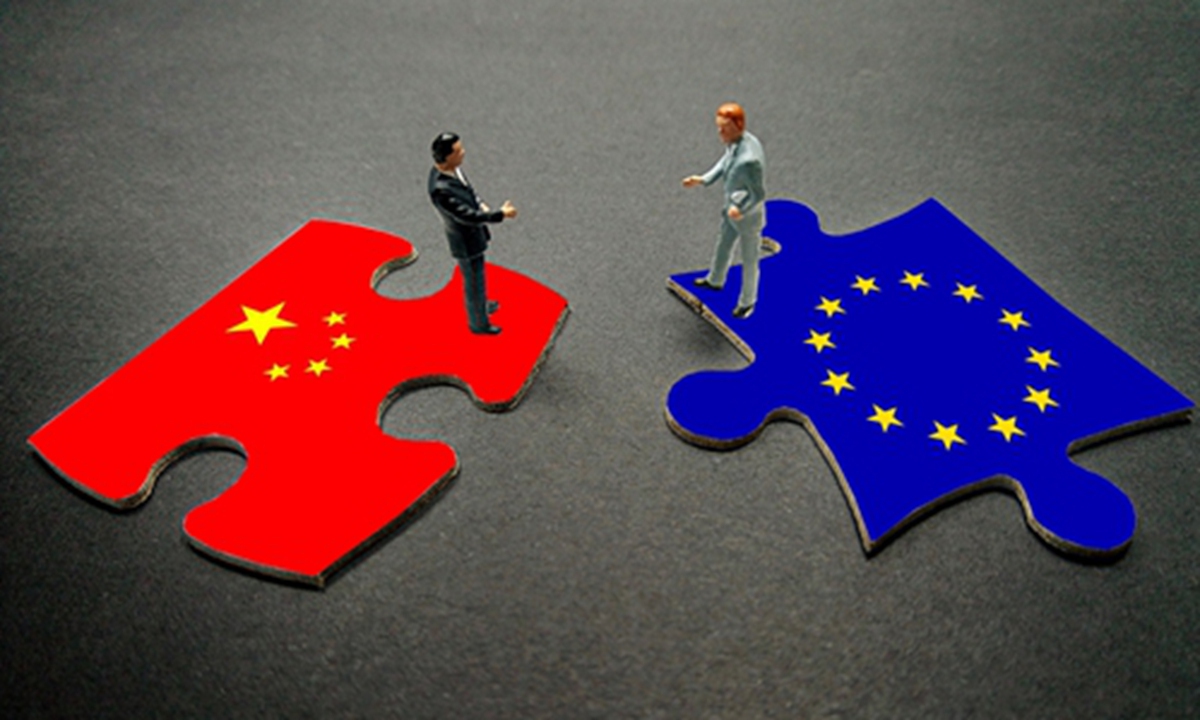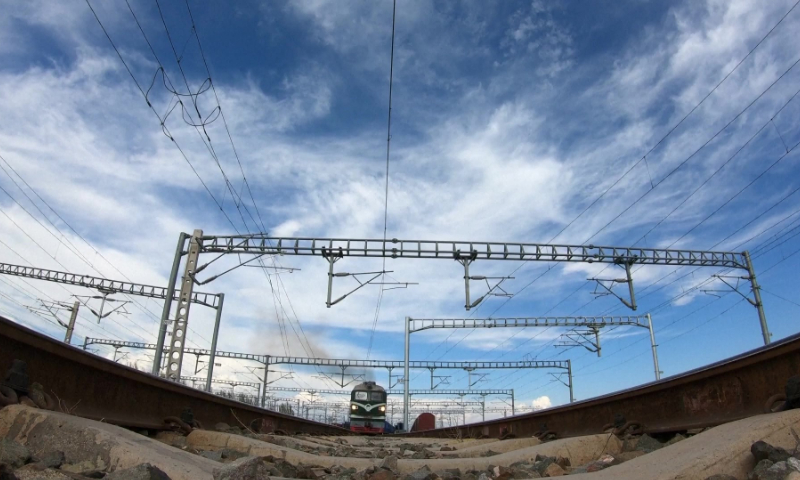EU fails to pass law requiring audits on Chinese suppliers, ‘reflecting that majority members against politicizing trade’

China-EU relationship Photo: VCG
The European Union on Wednesday failed to pass a controversial law that would hold big companies responsible for human rights and environmental abuses in their suppliers after some opposite voices see it as “administrative burden” and “fear of an uneven playing field on the global stage,” South China Morning Post (SCMP) reported.
The legislation itself lacks credibility and appears to be an attempt to use human rights and environment issue to suppress China, which is doomed to fail, experts said.
The rules would have required EU firms with more than 500 staff and €150 million ($162.7 million) net turnover worldwide to conduct detailed audits of their suppliers and partners, including those in China.
A Wednesday vote of the bloc’s 27 members in Brussels fell short of the qualified majority required to adopt the proposed rules.
Big member states including Germany and Italy abstained along with 10 other countries, diplomatic sources confirmed, while Sweden voted against the rules – leaving them below the required threshold of 14 member states with populations representing at least 65 percent of the union’s citizens, SCMP reported.
An EU diplomat said that members abstained for reasons that included the “administrative burden” and “fear of an uneven playing field on the global stage.”
Pro-business political parties around Europe were also concerned about the administrative burden the rules may require. Companies had also warned the laws would have left them disadvantaged when competing against firms that do not have to comply.
The fact that the law did not pass shows that politicizing economic and trade activities is not in line with the agreements of most EU member states, Cui Hongjian, a professor from the Academy of Regional and Global Governance with Beijing Foreign Studies University, told the Global Times on Thursday.
Those countries holding opposing views must also consider that keeping on this path will only further deteriorate the China-EU economic and trade cooperation, Cui said.
"The biggest problem facing Europe right now is the increasing contradiction between its desire to make a political impact and the need to consider its actual interests. If Europe does not change this trend, it will be difficult for it to achieve its goals," Cui said.
The controversial law is actually another form of so-called decoupling, Li Yong, a senior research fellow at the China Association of International Trade, told the Global Times on Thursday.
It is not surprising that it has not succeeded. Trying to prevent Chinese companies from cooperating with the EU or European countries by distorting facts would only add meaningless costs to economic and trade, Li said.
Chinese authorities have been rejecting EU accusations of so-called human rights violation. The groundless accusation on China’s human rights conditions, spreads disinformation, tarnishes China’s image and gravely violates China’s internal affairs, Chinese foreign ministry spokesperson Mao Ning told a press conference in December.

